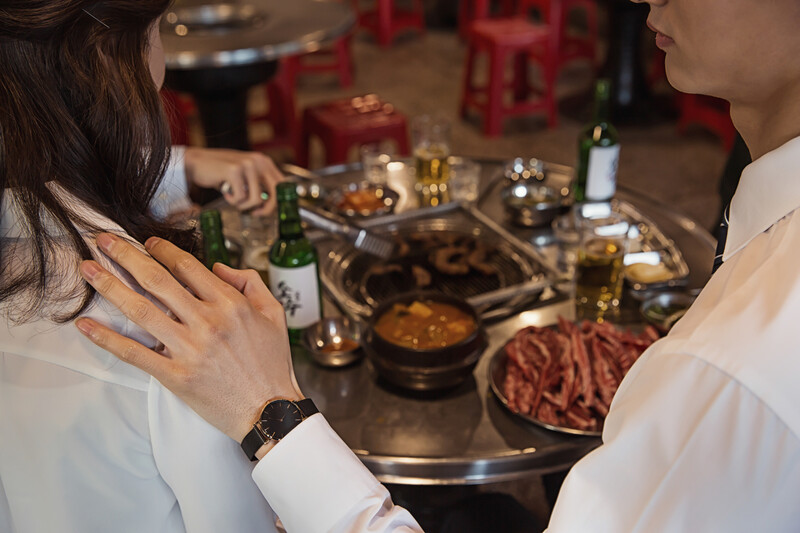Report on ‘2020 Gender Equality Promotion Strategic Project’, Korea Women’s Policy Institute
34.5% of female public servants who have experienced or witnessed sexual harassment for 3 years

Getty Image Bank
A survey result showed that among female public officials in their twenties and thirties of some local governments, 41.8% and 45.8% of female public officials witnessed or experienced sexual harassment over the past three years, respectively. Even though they experienced or witnessed sexual harassment, 68.8% of respondents said they did not take any action. The results of this survey, which was conducted after the sexual harassment incidents of former Busan Mayor Oh Geo-don and former Seoul Mayor Park Won-soon occurred last year, show the current status of the organizational culture of the community of local government officials. Korea Women’s Policy Institute reported on the 26th ‘2020 Gender Equality Promotion Strategic Project: Spreading the Gender Equality Agenda for a Sustainable Society’Revealed. This report said, “As cases of sexual harassment and sexual violence by local government heads occur one after another this year, it is necessary to identify and diagnose the pattern of grievances and inequality according to gender, generation, etc., and members’ perceptions of gender equality in the general public service society.” The survey was released. Previously, the National Human Rights Commission decided on the results of an ex officio investigation on sexual harassment by former Seoul Mayor Park Won-soon on the 25th, and the Ministry of Gender Equality and Family needs to check the organizational culture of public institutions at all times, and the Council of Mayors of the Republic of Korea needs to take a position statement to establish a gender-equal organizational culture Recommended. In the survey conducted online from November to December last year, 664 public officials (290 men and 374 women) from two local governments participated. The report said, “The public service society is one of the representative areas in which the gender gap is large in our society.” In the survey, the survey asked about gender discrimination status, gender role stereotypes, gender division of labor, and systems related to sexual harassment and sexual violence. In the survey, 34.5% of women and 14.1% of men answered yes to the item’I have witnessed or experienced sexual harassment more than once within the last three years’. In particular, 41.8% of women in their 20s and 45.8% of women in their 30s answered’yes’. There has been no adequate response to sexual harassment. Respondents (170 people) who have experienced or witnessed sexual harassment were asked’how did they respond to the sexual harassment they experienced or witnessed?’, and 68.8% (117 people) answered that’no action was taken’.

Sexual harassment experiences and witness rates by generation. ‘2020 Gender Equality Promotion Strategic Project: Spreading the Gender Equality Agenda for a Sustainable Society’
In addition, 46.3% of female respondents and 5.9% of male respondents agreed on’the overall public service life is unequal to women’, such as work evaluation, promotion opportunities, and opportunities for major departments, which are the key elements of career maintenance in public service. In particular, 57% of female respondents agreed that’if they have similar employment, men tend to be promoted faster than women’. On the other hand, 5.2% of male respondents agreed. 46.3% of women agreed, but only 3.4% of men agreed that’men tend to receive better reviews than women if their performance is similar.’ 38% of women agreed that’males are first assigned to major departments’ (8.6% of men), and 40.6% of women agreed that’the departments mainly assigned to different genders are classified’ (males 30.7%). “Among the women, women in their 50s and older who have a longer service period than other age groups perceived’the difference between genders in terms of credit and promotion’. In terms of gender differences in terms of credit and promotion, the consent rate of women in their 50s was 20% higher than that of women in their 20s.” Respondents answered that jobs that are considered’feminine’ in public service are mostly assigned to women. Of the female respondents, 73.5% answered that’they are mainly assigned to women for preparing refreshments’, and 69.8% answered’yes’ to’there are mainly women assigned to washing dishes, cleaning and managing goods’. Only 24.8% and 18.6% of men said yes.

Recognize personnel practices. ‘2020 Gender Equality Promotion Strategic Project: Spreading the Gender Equality Agenda for a Sustainable Society’
The report also conveyed the main contents of the conference for female public officials in their 20s and 30s, which took place after the survey. In this position, female public officials are often assigned to ① general affairs (general affairs without a special name), and women are also in charge of informal work such as washing dishes. ② Due to a hierarchical organizational culture, it is not free to express opinions to seniors, and ③ related to sexual harassment. The report explained that although cases were observed, it was not easy to raise an official issue. The report pointed out that, as a policy suggestion, “institutional and cultural measures are needed to improve the situation in which women are more assigned to secretaries, secretaries, civil affairs, or are given gender discrimination other than official work such as coffee and washing dishes.” did. In addition, he said, “Institutional intervention is required to increase fairness and credibility in the job evaluation, and accurate data on how male and female members are currently arranged in the organization, such as writing a report on the gender status of each position, institution, and department is needed when personnel are issued.” By Kim Mi-hyang, staff reporter [email protected]
